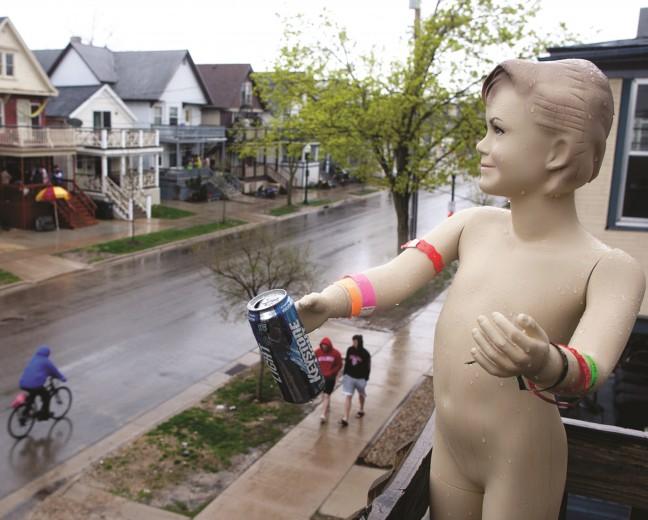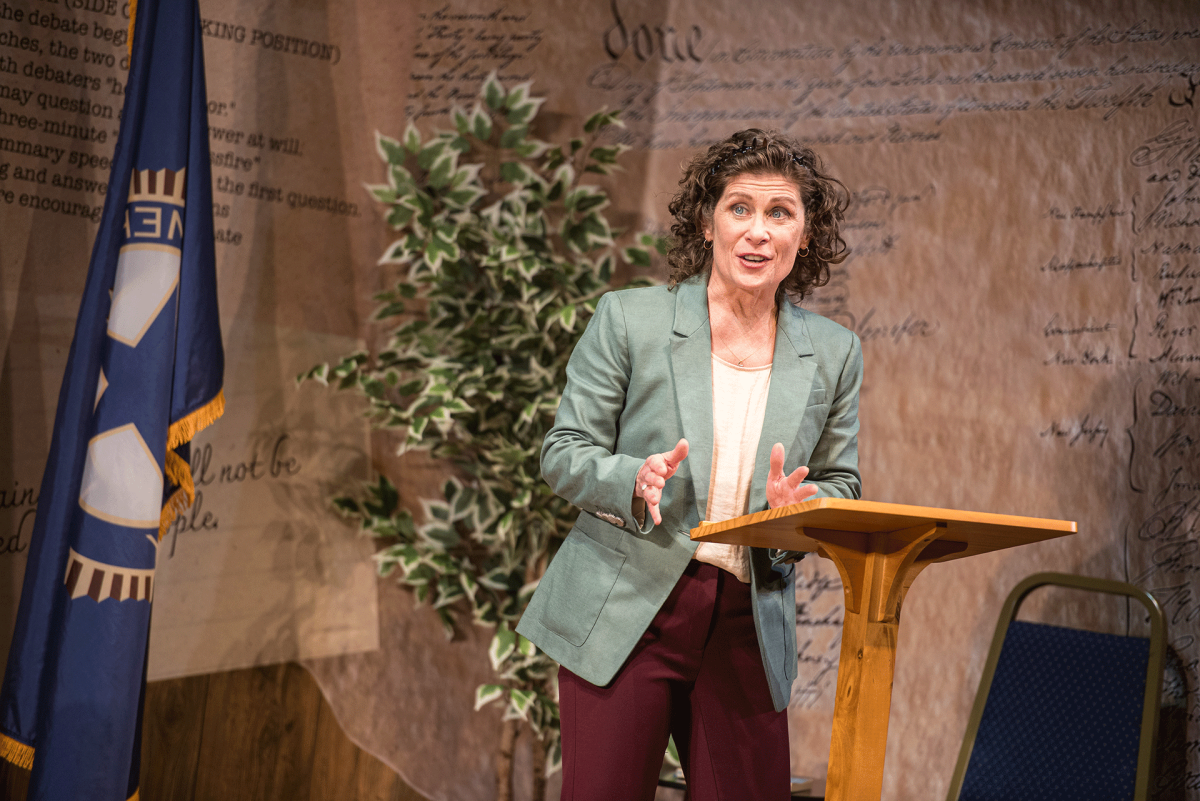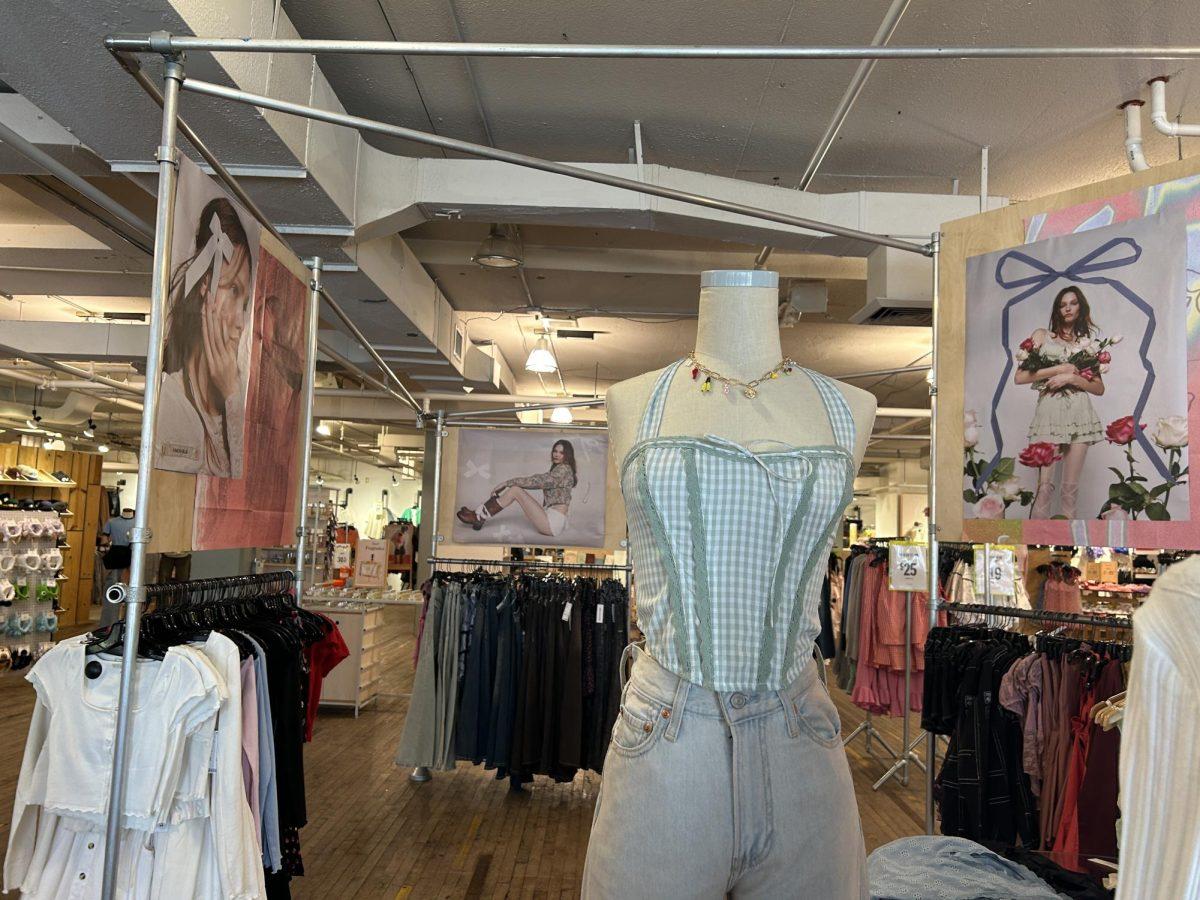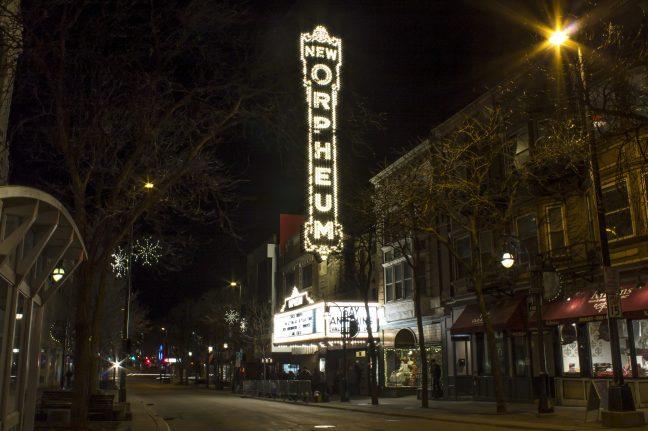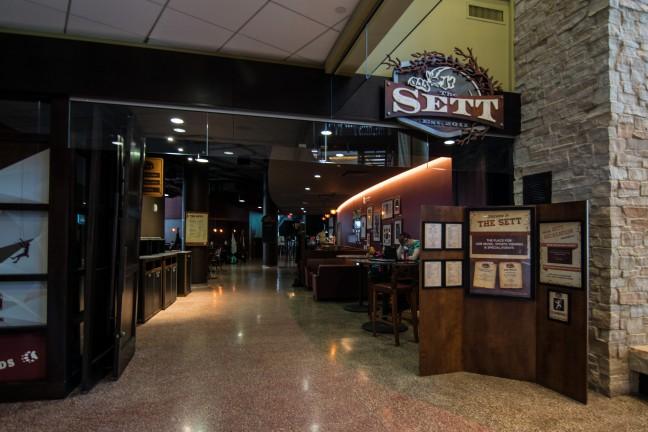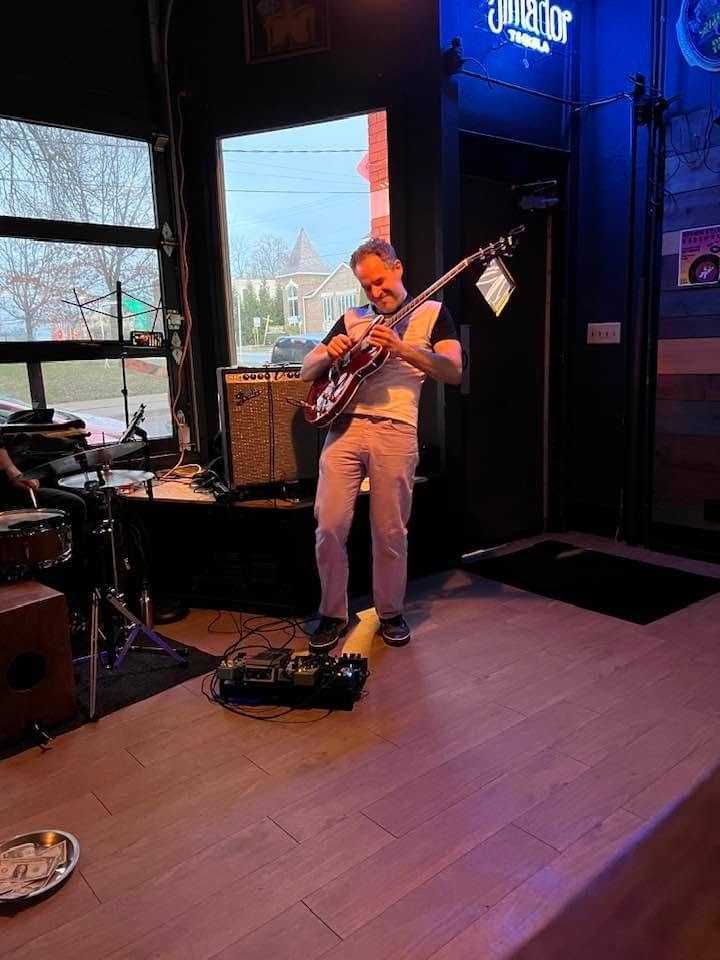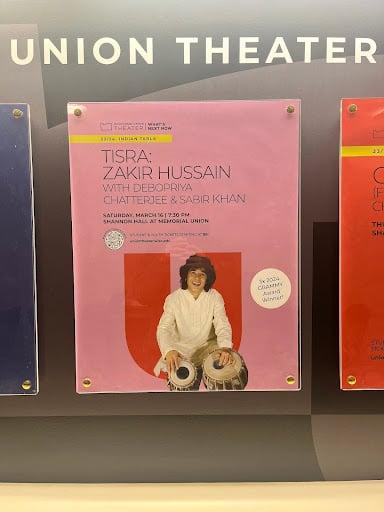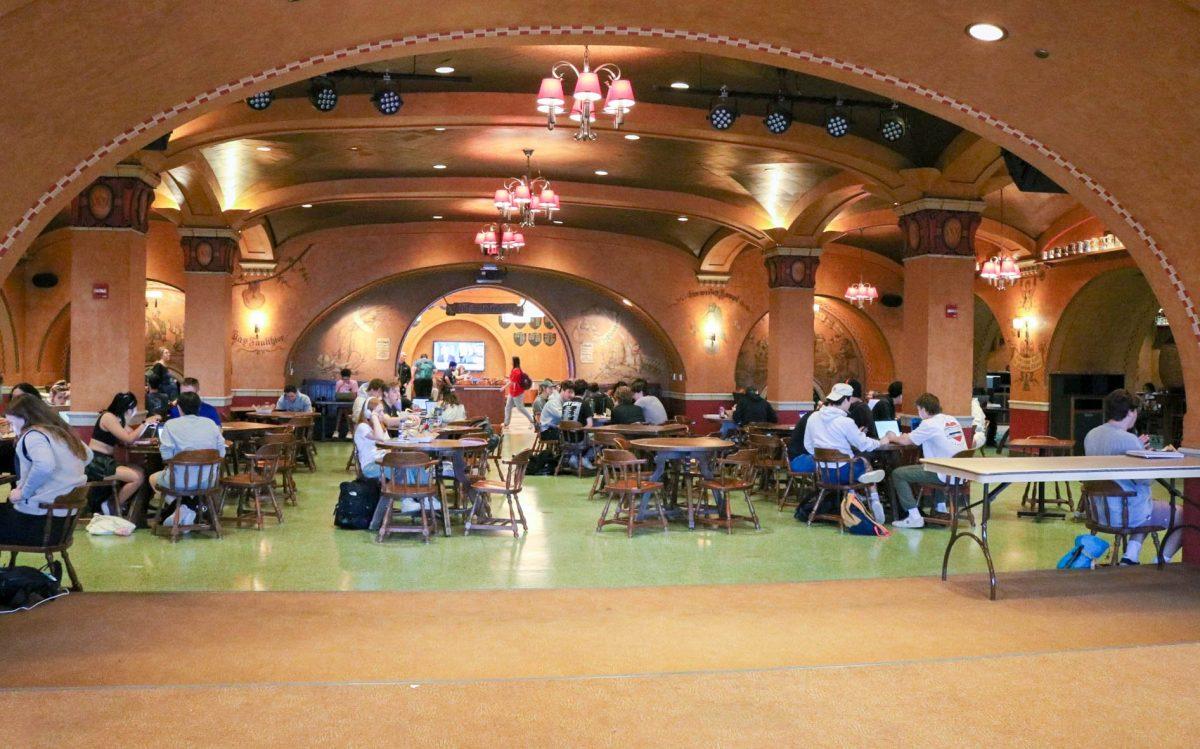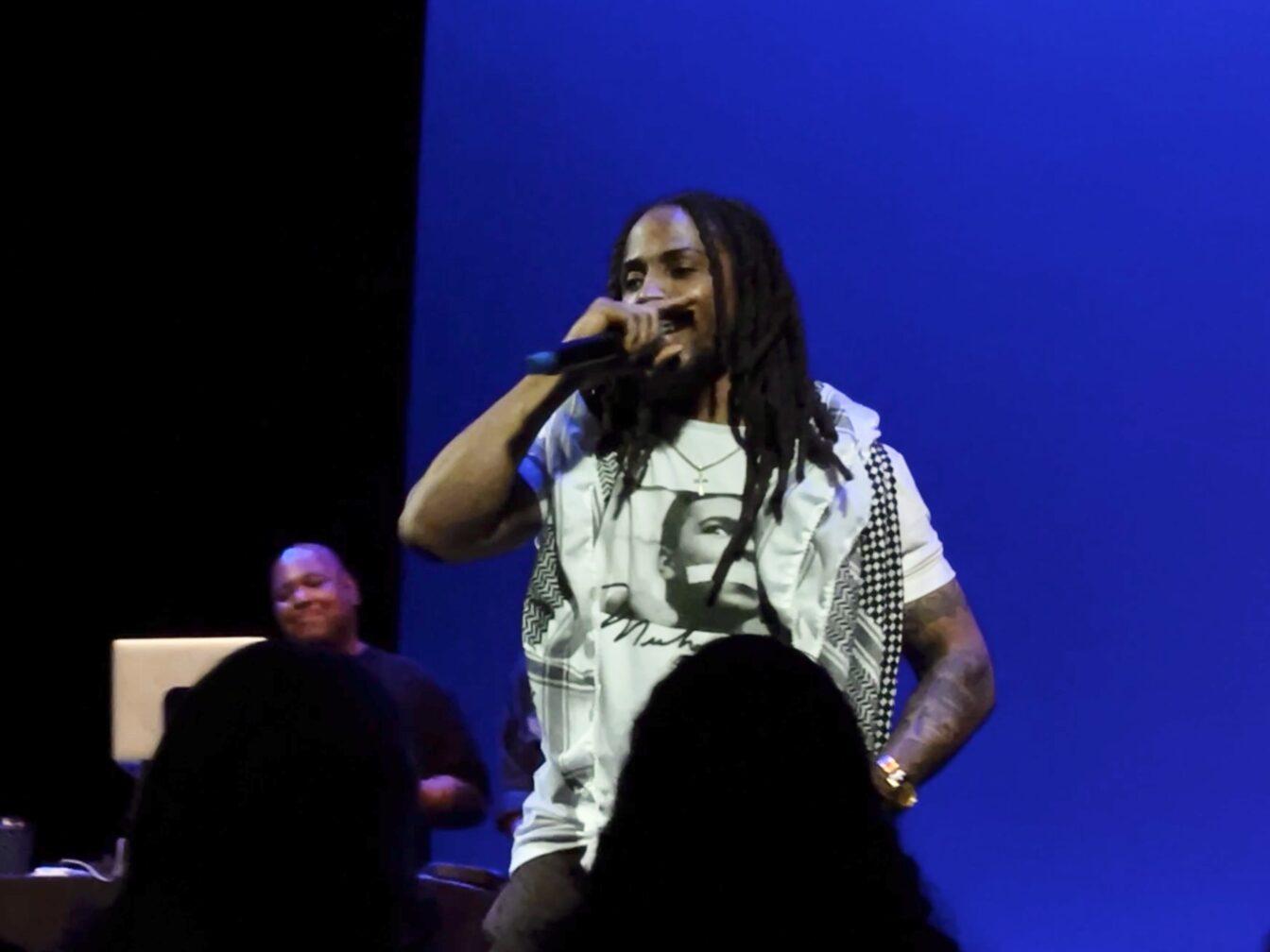The Mifflin Street Block Party — an annual gathering in Madison that initially started as a Vietnam War protest — was once a grand celebration of all things alcohol-related and one of the greatest college traditions in the United States.
Then people got stabbed, assaulted and arrested. And now the Mifflin Street Block Party that Madison residents once knew is gone, likely forever.
Come May 3, Mifflin will likely see its smallest turnout in decades due to police crackdowns on the event and the second annual student-led Revelry Music and Arts Festival, according to Ald. Mike Verveer, District 4.
“The block party as we know it seems to be on a death spiral,” Verveer said.
The Mifflin Street Block Party began in 1969 as a peaceful protest against the Vietnam War. In the following years, the party became a tradition: On the first Saturday of every May, thousands of University of Wisconsin students swarmed to Mifflin Street for an event that, despite its initial political motivations, increasingly became about the consumption of alcohol.
For 20 years, despite crowds of thousands, police experienced relatively few problems with the party. In 1990, the city removed any official police presence with the exception of a few off-duty officers. The event cost the city $44.33 that year, the Wisconsin State Journal reported.
1996 was a turning point for Mifflin, when 39 police officers had to deal with 15,000 partygoers, some of whom created bonfires in the street and pelted firefighters with rocks and bottles.
As the years wore on, Mifflin attendance continued to climb, as did the number of arrests. In 2002, only two partygoers were arrested. But by 2004, this number increased to 190. In 2008, it reached 366.
The 2011 and 2012 Mifflin Street Block Parties were ultimately the event’s undoing. The 2011 party saw two life-threatening stabbings, sexual assaults and instances of battery, all linked to binge drinking. The event cost the Madison Police Department $130,000.
The 2012 Mifflin saw nearly 400 arrests, compared to 171 the previous year.
“We have been totally engulfed in everything Mifflin in the past two months, and that’s pretty much what we have worked on. It was a one-day event, and it took nearly all of our resources,” MPD Officer Christine Hill told The Badger Herald after the 2012 party.
Major public officials, including Mayor Paul Soglin, called for an end to the block party altogether. In 2013, Madison police sent a letter to residents saying, “There will be no Mifflin Street Block Party on or around Saturday, May 4th in 2013.” The letter said the city did not sponsor the event and discouraged students from throwing house parties in place of the block party.
Many UW students took to social media to express their outrage at the decision, with many calling the announcement a “war on Mifflin.”
The cancellation of Mifflin came at the same time as the announcement of the Revelry Music and Arts Festival — a student-led festival with 11 national and local musicians — that was meant to act as an alternative to Mifflin. Student organizers stressed the festival was not intended to be anti-Mifflin. But student opinion was mixed about the festival, with many seeing it as an attack on the block party, according to Revelry spokesperson Bess Donoghue.
Revelry saw an attendance of more than 3,050 in its first year, filling its Union South venue to 82 percent capacity, according to a Revelry press release. Police issued no citations at the festival.
Meanwhile, the 2013 Mifflin Block Party saw its lowest attendance in years. Police issued only seven citations, compared to 545 the previous year, according to NBC15 WMTV. UW police attributed this difference to MPD’s efforts to deter students from attending as well as the introduction of Revelry.
The total cost to the city also dropped considerably for 2013’s Mifflin because police were sent home much earlier than anticipated as a result of the relatively small crowds on the street.
The Mifflin of decades past was over.
“It was the difference between night and day. There’s really no comparison,” Verveer said.
Police considered 2013’s Mifflin a “smashing success,” according to Verveer, and officers will take similar measures to ensure this year’s event is just as safe.
“The police plan for this year is relatively similar to last year in terms of the number of cops they have ordered in to work on May 3. A real zero-tolerance approach to alcohol violations in the Mifflin neighborhood might be similar to recent years,” Verveer said.
Revelry will return this year for its second annual festival. Headliners include nationally-known acts such as Dillon Francis, Waka Flocka Flame and Sky Ferreira. This year, the festival will be held on Langdon Street and the Memorial Union Terrace, a venue that doubles the festival’s potential capacity.
The city’s support of the festival is evident in its granting Revelry permission to use Langdon Street. According to Verveer, attempts to use city streets for gated music festivals are usually rebuffed because of legal arguments saying it’s unlawful to charge admission to be on a public street.
City attorneys initially expressed concern when the Wisconsin Union Directorate approached the city asking for a permit to host the event on Langdon Street.
“[The attorneys] were convinced by others in city hall that this is a necessary exception because of the history of this first weekend in May going back to 1969,” Verveer said. “It would perhaps help us and the city and the cops in particular continue to try to end the Mifflin Block Party tradition.”
This street permit will require closing off areas of Langdon Street and rerouting city buses that pass in front of Memorial Union. Despite these obstacles, it’s clear that the City of Madison is encouraging the festival’s growth as a method of further subduing the dying Mifflin.
Alcohol will be served at the event to students 21 and older in Memorial Union and on the Terrace.
Despite the student backlash against the festival in 2013, Donoghue has seen largely positive reception this year.
“We haven’t gotten any of the hate we saw on social media last year. Occasionally people want to defend Mifflin, but there’s been a lot of great support. Part of that might be that we have a stronger lineup this year,” Donoghue said.
Donoghue sees the festival growing in the future, with it maybe one day extending into Library Mall.
“As more students start to graduate who understand the Mifflin experience and as more students come in not really knowing what that is, I think more people are going to be interested in [Revelry],” Donoghue said.
The first weekend of May in Madison now finds itself in flux. A beloved block party tradition that has resulted in violence, led to numerous arrests and cost the city hundreds of thousands of dollars is experiencing a slow death, while an up-and-coming student-led music festival with city support gains traction despite initial student backlash.
No matter where students decide to party, Verveer remains optimistic about the weekend’s outcomes:
“I anticipate no problems this year.”








